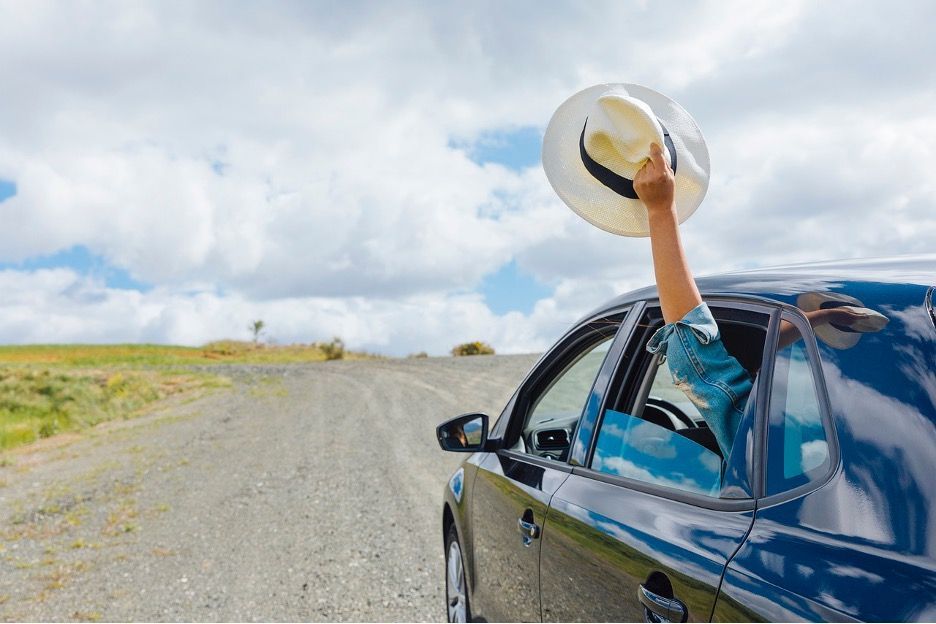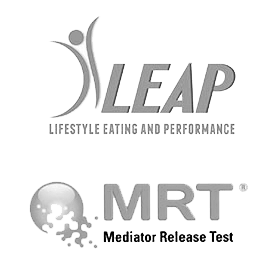Five Ways to Get Your Gut Health Back on Track for Fall
Foods for gut health, heal your gut, gut health and anxiety, women’s gut health

Fall-elujah! Summer is wrapping up. For us in the South, this means less humidity and finally the steady decline in temperature. To me personally, this means I have no more excuses for outdoor runs, which hurts because I have excused myself all summer in favor of the pool and a margarita. Sound familiar? Instead of beating ourselves up, lets get in gear with the food and the movement so we have all the energy to do all the fall-ing (and all the strength to get back up…. get it?). Read on for 10 ways to reset your mind, body, and gut for the season ahead.

1. Baby, Work It
Exercise improves gut health in SO many ways. Mood is boosted, relaxing the nervous system, backing off that fight or flight or fawn response1 (diarrhea, diarrhea, or constipation as I call it).
Get this- we don’t know how, but exercise also improves the microbiome.1 Elite athletes, in studies across the board, have a more diverse microbiome, less overgrowth bacteria, and more cells that help to keep the gut healthy (SCFA producers, long story).1
Exercise reduces inflammation! How? By activating, surprise, the sympathetic nervous system. This in turn releases feel good chemicals, which actually increases the amount of immune boosting cells(monocytes) in your blood and reduces those pro-inflammatory proteins (cytokines)!2
A recent review summarized in Medical News Today says the following:

“Our study shows a workout session does not actually have to be intense to have anti-inflammatory effects. Twenty minutes to half an hour of moderate exercise, including fast walking, appears to be sufficient. Feeling like a workout needs to be at a peak exertion level for a long duration can intimidate those who suffer from chronic inflammatory diseases and could greatly benefit from physical activity.”2
When I am the most tired is when I benefit most from a workout. Without fail, I get more energy and truly, never regret it.
But how to get going, especially after all that summer fun?
- Set a goal! My default is ‘this week I will work out for at least 10 minutes, three times’.
- Start with 10 minutes. YouTube and Instagram (and just Google) are all places to find a FREE 10-minute workout. When I am feeling particularly out of shape or out of the groove, I opt for 10 minutes of stretching. I am mildly sore the next day, and I am always proud I put the time in.
- Walking is a thing. Let’s build the habit before we go to a 90-minute Orange Theory class. I would much rather a few weeks of scheduling and self-motivation success with fewer visible results than one hour of feeling like a sloth never to return.
- Remember, you can always work out longer, more often, differently than planned based on how you feel-but you cannot alter that feeling of accomplishment when you hit that first goal and keep hitting it!
2. Dear Diary
A food journal. We love to hate it. According to recent research, food journaling can increase the variety of foods we eat, significantly reduce the amount of crap we eat, and moderate the amount of sauces, seasonings, calories, and water we take in3 because we have to know amounts and write it all down and then see it in black and white. Ouch.
I encourage anyone on a gut health journey to use MySymptoms app or their own notes to also record BMs, supplements, and other symptoms. This way, you can look back and see patterns like ‘ice cream gives me diarrhea’ or ‘I do not eat vegetables on Monday because I am busy and then I am constipated’.

3. Take it slow
Making one or two small changes per week will help to build habits! This is what we want. Results in the nutrition space are never going to be instant, and if they are, you will be right back where you started just as quickly. I promise
So instead of the merry go round, let’s get on log flume. Is that what it is called? That fun log ride? In the water? Anyway- here are a few goals I like to set.
- Add one fruit or veg to each meal
- Increase water intake by 1 glass per day for 1 week
- Eat one serving of fermented food per day
- Make a shopping list before you go to the store (I do not even care what is on the list, just get in the habit)
- Take 5 deep breaths before each meal


4. Relax!
So many ways to relax. Meditation is the first thing many of us think of. Do you need to ommm for an hour every day upon waking? Gee I hope not or I am in trouble. Forms of medication can include journaling for pleasure, walking in nature, five minutes of visualization (think of a life where you have achieved some of these goals), etc. Mindfulness- retraining your brain when you start to spiral, is actually a form of relaxation. Listening to music for 20 minutes lowers stress levels. Laughing, stretching, putting down the phone, gratitude lists, being alone, time with your animals- all great ways to try and chill.
Why? Relaxation reduces that fight flight fawn state that we all live in basically.. because the internet. It forces us to slow down. This too can drive the microbiome and inflammatory response.1 Crazy, right?
5. Go Outside.
Just go. A brand spanking new study demonstrates 227 pathways that connect our well-being to what they call ‘human-nature relations’. Mechanisms include:
- Appreciating nature itself, the sounds, smells, sights, breeze
- Gathering in nature and consuming natural products (so, apple picking)
- Spiritual practices as simple as taking a walk in the woods as your meditation4
This is the first study of its kind that is truly comprehensive, so we need more. But how cool that the ocean or forest breeze not only helps to relax you but also strengthens your sense of community, connectedness, well-being; all while firing up those pathways that boost your healthy gut flora. Completely insane.

What to eat exactly is for another post. If you are feeling well, follow the general rule of 5 servings of plants a day, nuts, seeds, healthy fats, whole grains, and plenty of protein. Do NOT avoid carbs please. If you are not feeling well, stick with bland foods that have less seasoning, avoid raw veggies, keep the fiber low. Always packaged, processed, and sweet foods in moderation.
Thanks for reading! Apply to work with me 1:1 here , check out my Instagram here, check out my TikTok here, and learn more here !
Reference List
1. Clauss M, et al. Interplay Between Exercise and Gut Microbiome in the Context of Human Health and Performance. Front. Nutr. 2021;8:637010. doi: 10.3389/fnut.2021.637010
2. Dimitrov S, Hulteng E, Hong S. Inflammation and exercise: Inhibition of monocytic intracellular TNF production by acute exercise via β2-adrenergic activation. Brain Behav Immun Health. 2017;61:60-68. doi: https://doi.org/10.1016/j.bbi.2016.12.017.
3. Embling R, et al. Effect of food variety on intake of a meal: a systematic review and meta-analysis. Am J Clin Nutr. 2021; 113(3):716-741. doi: https://doi.org/10.1093/ajcn/nqaa352
4. Huynh LTM, et al. Linking the nonmaterial dimensions of human-nature relations and human well-being through cultural ecosystem services. Sci Adv.2022;8(31):10-113. DOI: 10.1126/sciadv.abn8042







